Zetta Elliott's Blog, page 86
August 1, 2011
The Birthday Party Pledge
 Do you have kids in your life? Would you be willing, for one year, to give ONLY multicultural books as birthday presents? Last week I wrote a guest post for my favorite literacy org, Behind the Book. If you're looking for a way to encourage reading in children, I hope you'll consider making a donation to this wonderful program that brings authors into urban schools AND provides each child with a signed book. In my post I consider "The Real Value of Free Books," noting that books in the home make a huge impact on a child's academic success, yet the habit of book-buying isn't always present in low-income areas. We need to find ways to develop that habit, and the BPP is one idea. Do you have any others? Does giving away books diminish their actual value, or can a free book still be a prized possession?
Do you have kids in your life? Would you be willing, for one year, to give ONLY multicultural books as birthday presents? Last week I wrote a guest post for my favorite literacy org, Behind the Book. If you're looking for a way to encourage reading in children, I hope you'll consider making a donation to this wonderful program that brings authors into urban schools AND provides each child with a signed book. In my post I consider "The Real Value of Free Books," noting that books in the home make a huge impact on a child's academic success, yet the habit of book-buying isn't always present in low-income areas. We need to find ways to develop that habit, and the BPP is one idea. Do you have any others? Does giving away books diminish their actual value, or can a free book still be a prized possession?








July 30, 2011
headstrong/heartstrong
One of the things that surprised me most during my conversation with Jacqueline Woodson was her admission that she sometimes doubts if she can complete another book. At this point in my writing career, I feel like I've got lots of novels yet to come but when I think about my teaching…sometimes I wonder if I still have what it takes. I even have dreams where my classroom is chaotic, I'm unprepared, and the students are unruly! Next month I start my new job and I'm working on my syllabi right now. I want to develop several new courses because I see segments of the student population that aren't being served by the existing curriculum. And I was raised to simply fix whatever I see that's broken—my father called that "taking the initiative" rather than waiting to be asked. That approach hasn't always worked well at other jobs, however, because what I see as "broken" others often see as perfectly fine. And I do wonder—how will these students respond to my teaching style? Will my ideas and innovations be appreciated by the other faculty? Will I be expected to simply uphold the status quo? Then yesterday I got this beautiful, heartwarming email from a former student and it banished (almost) all of my anxiety:
Dear Dr. Elliott
Hello, my name is ***. I am not sure if you remember me but I took your African American Literature class at *** roughly five years ago while you were a visiting professor. I have recently been thinking back on my time at *** and as a whole it was not a great educational experience. However, one of the few great moments of my college education was taking your college course. You unknowingly bestowed upon me an immeasurable amount of strength. You always forced me to look within myself, and take what I learned from class and attempt to use it within my own life. I remember vividly a heated class discussion we had one day. You asked the class, "Can being gay be equated with being black?" I had never come out to anyone outside of my closest friends, yet you made me feel secure enough to speak up and come out in front of the class in defense of being gay. I just want to let you know that regardless if you remember me or not I appreciate you. You have made a huge impact on who I am today and I will forever be indebted to you and I hope that many, many other people get to experience what I experienced. You were the bright spot to an otherwise dark education and i thank you so much for that. You were amazing and again thank you. I sincerely hope to meet you again some day.
With extreme respect and gratitude,
B








Jacqueline Woodson interview, Part 2
As promised, here's the second half of my interview with Jacqueline Woodson. You can also find a condensed version at Ms. Magazine's blog and I filmed our conversation, too (find it on YouTube).
ZE: Do you identify as a feminist writer?
JW: Um…
ZE: Or as a feminist at all?
JW: It depends on who the audience is. You know, if I was speaking to a group of feminists I think I would identify as a feminist writer. If I was speaking to a group of writers, I would identify as a writer who is feminist. It really depends. I feel like I get really nervous sometimes around the qualifiers because of who has to qualify and who doesn't have to qualify. Am I an African American writer? It depends. If I'm speaking to an all-black audience, then yeah, I'm an African American writer. If I'm speaking to a group that's not all African American, then I'm a writer who is African American. If I'm speaking to a queer audience, I'm a queer writer. And on it goes. But all of those things completely inform who I am and are a part of it. And so I definitely am a feminist but I really think that in order to create change in this world, we have to figure out who does the qualifying and who gets qualified and begin to change that.
ZE: Well, since you are going to have a teenager before too long—she's a tween already, right?
JW: Oh, man…
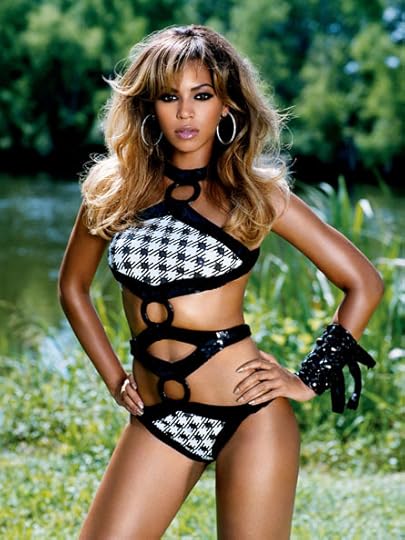 ZE: How do you think today's teenagers learn about feminism? I claimed that identity at age 12, but don't recall reading books with feminist characters until college. Sometimes I worry that young people today think the most empowered black woman of their generation is Beyoncé.
ZE: How do you think today's teenagers learn about feminism? I claimed that identity at age 12, but don't recall reading books with feminist characters until college. Sometimes I worry that young people today think the most empowered black woman of their generation is Beyoncé.
JW: She's pretty powerful! It's an interesting time to be a mom, to be a woman, you know, post-hip hop…
ZE: Are we post-hip hop?
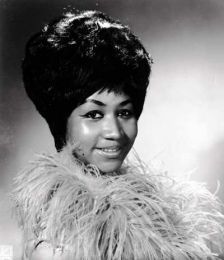 JW: Well, the kids growing have never not known hip hop. And I think they haven't [not] known the beautiful brown girl who's super famous. We had Aretha Franklin. I had Michael Jackson and he was a young performer but he was male and complex, and he had brothers and some of them were cute and some weren't. But we didn't have all these icons who were similar to us to choose from. So I wasn't trying to say, "I could be the next Aretha Franklin or Al Green." I didn't want to. It was a different world. But here the worlds have come so close in this information age, everything is right up on us and we have all this information about everybody. And all this access and "friendship" too. So all of a sudden kids have–this is their world. I think one thing I've noticed is that my daughter has Tashawn, Toshi Reagon's daughter who is her cousin, and she idolizes her. And she has Kali, Linda Villarosa's daughter. Linda used to be one of the heads at Essence and she wrote the first lesbian story in Essence about coming out. Having those two teenagers in her life makes a big difference. Tashawn—you know who her grandmother is [Bernice Johnson Reagon], and her mother is, and now who she's become. It took her a long time to get there but she's like, "Toshi, You need to shower. You smell." And Toshi will be like, "Ok, I hear." Or, "Toshi, you need to stop looking at whoever the celebrity is and think about what you want to be." And it's so interesting that she can't hear it from us. But she can when it
JW: Well, the kids growing have never not known hip hop. And I think they haven't [not] known the beautiful brown girl who's super famous. We had Aretha Franklin. I had Michael Jackson and he was a young performer but he was male and complex, and he had brothers and some of them were cute and some weren't. But we didn't have all these icons who were similar to us to choose from. So I wasn't trying to say, "I could be the next Aretha Franklin or Al Green." I didn't want to. It was a different world. But here the worlds have come so close in this information age, everything is right up on us and we have all this information about everybody. And all this access and "friendship" too. So all of a sudden kids have–this is their world. I think one thing I've noticed is that my daughter has Tashawn, Toshi Reagon's daughter who is her cousin, and she idolizes her. And she has Kali, Linda Villarosa's daughter. Linda used to be one of the heads at Essence and she wrote the first lesbian story in Essence about coming out. Having those two teenagers in her life makes a big difference. Tashawn—you know who her grandmother is [Bernice Johnson Reagon], and her mother is, and now who she's become. It took her a long time to get there but she's like, "Toshi, You need to shower. You smell." And Toshi will be like, "Ok, I hear." Or, "Toshi, you need to stop looking at whoever the celebrity is and think about what you want to be." And it's so interesting that she can't hear it from us. But she can when it  comes from teenage girls. I was looking at New Moon Girl, which is a feminist young girl's magazine I got for her—it's great. When she first got it she was like, "This doesn't have any advertisements in it." And I'm like, "Yes, that's the point." And she hated it at first and then I saw her sneaking and reading some of the articles. But they say young girls need older girls that they look up to so they have all these celebrities close but then they have real girls even closer. And that person needs to be someone on the up and up. Kali and Tashawn are two teenagers I trust forever and that's going to make a difference in her life. Also she's being raised by a village, and coming back to those Republicans and whatever they say about single parent families…they don't understand that culturally, that a lot of times these kids may have a single dad or a single mom but they also have these villages going on and people who are not letting them get away. And they don't have what I call "the nuclear insanity." Even when I was growing up with my mom and grandma, it was like, "This is the family. It doesn't go outside of the family. Don't tell anybody about that." And now we have the village and they're like, "Your mom is crazy if she thinks she should do that!" And so the kid has other adults to bounce things off of.
comes from teenage girls. I was looking at New Moon Girl, which is a feminist young girl's magazine I got for her—it's great. When she first got it she was like, "This doesn't have any advertisements in it." And I'm like, "Yes, that's the point." And she hated it at first and then I saw her sneaking and reading some of the articles. But they say young girls need older girls that they look up to so they have all these celebrities close but then they have real girls even closer. And that person needs to be someone on the up and up. Kali and Tashawn are two teenagers I trust forever and that's going to make a difference in her life. Also she's being raised by a village, and coming back to those Republicans and whatever they say about single parent families…they don't understand that culturally, that a lot of times these kids may have a single dad or a single mom but they also have these villages going on and people who are not letting them get away. And they don't have what I call "the nuclear insanity." Even when I was growing up with my mom and grandma, it was like, "This is the family. It doesn't go outside of the family. Don't tell anybody about that." And now we have the village and they're like, "Your mom is crazy if she thinks she should do that!" And so the kid has other adults to bounce things off of.
ZE: Multiple perspectives.
JW: Exactly. And so I think that's what's hopefully going to help her through all the dreck. And a lot of kids through figuring out who they are. But I think they so need those feminists who don't even know they're feminists yet. I don't know if you asked Kali and Tashawn if they're feminists–I think they completely are, but I don't know if that's the language they would use to describe who they are.
ZE: Well, many black women historically have rejected the "f' word and chosen some other terms.
JW: Who was it who said, "If there was a war between white feminists and black something I'd be shot in the back by someone who calls me 'sister'"? Maybe it was Barbara Jordan? But basically that fight, whose side am I really on? The person was a black lesbian. That kind of dilemma…it is true—the minute I think of feminist, I think: white woman. I think of "strong black woman" as the equivalent of feminist but I use different language for it.
ZE: Different associations, that's interesting. I never think of white women when I think of feminism!
JW: Really!
ZE: I get nervous when people ask if I can teach Gender Studies because I don't know any of those white women! All I know are the black women. So I could teach Black Women's Studies or Black Feminist Studies. But I'm at a loss when it comes to the rest of it.
JW: Didn't so many black feminists—did they ally with the white feminists?
ZE: Some people argue that the feminist movement comes out of the abolitionist movement. So you had these really devoted white women, black women, men who were committed to abolition and that form of social justice. But a lot of abolitionists weren't interested in racial equality. So then when you see the first wave feminist movement evolving out of the abolitionist movement and pushing for suffrage…certain black women got invited to speak in the north, but not in the South…so I just feel like there's always been these divergent histories and there are moments where they're bound together but it just doesn't seem genuine to me…Ok, we're almost at the end.
 The Cooperative Children's Book Center keeps annual statistics on the race of authors of children's books, and these stats consistently show that authors of color make up less than 5% of all the books published for children. I sent you a long quote by Barbara Smith, one of the founders of Kitchen Table: Women of Color Press.
The Cooperative Children's Book Center keeps annual statistics on the race of authors of children's books, and these stats consistently show that authors of color make up less than 5% of all the books published for children. I sent you a long quote by Barbara Smith, one of the founders of Kitchen Table: Women of Color Press.
JW: I can't believe you explained who Barbara Smith was!
ZE: I'll just read a short part:
"As feminist and lesbian of color writers, we knew that we had no options for getting published except at the mercy or whim of others—in either commercial or alternative publishing, since both are white dominated."
Now you are a prolific, celebrated, award-winning author. Would you say that the problems Smith identified in the 1980s have been resolved? For example, could you name five other black LGBT authors of children's literature?
JW: Um…I couldn't. I probably could name two, but that doesn't—I don't know if they don't exist. I don't know if people just aren't out. I think that's one of the interesting things that's still happening. Even with white children's book writers, I think there are people who are still very closeted. And since people of color getting published in the mainstream is still pretty new, I don't know how many people are coming out and having their first book be a queer book and saying, "I'm queer." I think it's still very loaded. I think you're dealing with children, and you're dealing with a society that automatically associates pedophilia with anybody who's interested in children in any way. And a lot of people who still think that queerness is some pathology. I definitely know there are not a lot of—I haven't come across a lot of young black writers that are new, but I feel like, if the book is finished and 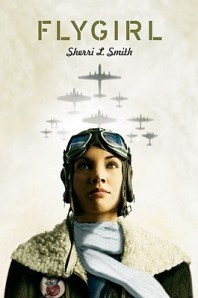 it's halfway decent, I feel like there's a home for it. And I don't know if that's me just being out there and not knowing enough about publishing. I mean, you're one of the new writers coming up. I think of Coe Booth, Brenda Woods, the woman who did Fly Girl [Sherri L. Smith]. I'm just thinking of African American and Caribbean American writers that I can think of off the top of my head. I think the writing is very different. I think you're one of the people who's potentially going to change the world of—I don't want to say "science fiction" and sound like an old school person…
it's halfway decent, I feel like there's a home for it. And I don't know if that's me just being out there and not knowing enough about publishing. I mean, you're one of the new writers coming up. I think of Coe Booth, Brenda Woods, the woman who did Fly Girl [Sherri L. Smith]. I'm just thinking of African American and Caribbean American writers that I can think of off the top of my head. I think the writing is very different. I think you're one of the people who's potentially going to change the world of—I don't want to say "science fiction" and sound like an old school person…
ZE: Speculative fiction.
JW: Right, speculative fiction. I think Coe is doing more of the kind of urban stuff and then other people are trying to do some of the old school traditional writing. But I think in terms of publishers trying to figure out where it belongs, that's kind of a slower movement—especially with the business of books changing so quickly. And I also don't know what's happening on the web and what people are doing for themselves, the way Barbara Smith was able to create a press that was still publishing paper [books]. I don't know what's happening out in the world where people are saying, "Ok, to heck with publishing because they're not publishing me." But is starting your own press…
ZE: Well, that's me—I had to self-publish.
JW: Yeah, so you self-published but you also have your blog, which is a new part of publishing. And you're an academic so you're writing about it and changing the world that way. So I think—
ZE: You feel optimistic then about the future of publishing.
JW: You're like, "Shut up."
ZE: No! It sounds like—
JW: I think I feel optimistic but I think people can't expect it to be the old way of doing stuff. I mean, I start doing this in the '90s—my first book was published in 1989. And that was before the web, it was before so much changed about publishing. I think if I was starting to write today, I would be self-publishing.
ZE: Do you really?
JW: I totally think so.
ZE: Why?
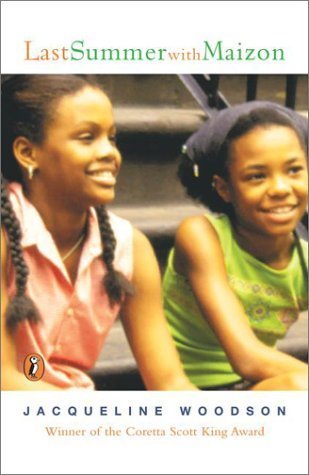 JW: Because I think—especially if I started with a book like Last Summer with Maizon. Maybe if I started with Maizon at Blue Hill, because that's something other—a black girl going into a white environment. So I think that book might have made it into the mainstream. Or the book I just wrote. But I don't know about Miracle's Boys, I definitely don't think Last Summer with Maizon. From the Notebooks of Melanin Sun? I don't know. Because a publisher's first question is, "How is this going to sell? And how much money can I make off this?" And if they think it's going to sell to 1000 people, that's not good—or if they think it's not going to have a long life or win an award. All those things inform what gets out in the world. It's sad, but we do what we've always done, which is, make a way out of no way. And I think people must be doing that because there are so many writers in the world.
JW: Because I think—especially if I started with a book like Last Summer with Maizon. Maybe if I started with Maizon at Blue Hill, because that's something other—a black girl going into a white environment. So I think that book might have made it into the mainstream. Or the book I just wrote. But I don't know about Miracle's Boys, I definitely don't think Last Summer with Maizon. From the Notebooks of Melanin Sun? I don't know. Because a publisher's first question is, "How is this going to sell? And how much money can I make off this?" And if they think it's going to sell to 1000 people, that's not good—or if they think it's not going to have a long life or win an award. All those things inform what gets out in the world. It's sad, but we do what we've always done, which is, make a way out of no way. And I think people must be doing that because there are so many writers in the world.
ZE: So do you think it's less likely for a writer starting out today—for, say, a writer like me to have thirty books published in my lifetime with traditional presses? Or will it be a mix of digital publishing and self-publishing…
JW: It depends on how you write. When I started out I was writing three books a year, now I write about two. And if you look at it over—how many years have I been doing this?
ZE: Twenty.
JW: I think it's possible. I don't think they'll be books. They might be e-books, or self-published. They might be books that go straight to film. I think there are all these doors that have opened that are great. So negotiating contracts is different now—what happens when iPad wants to buy your book? Which I still haven't figured out, not that they've offered. They might be books that start on the iPad, that you're commissioned for, and none of that makes them lesser than. I don't think self-publishing makes a book lesser than a mainstream publisher because you have all the same outlets for getting the book published. And also you have the same places you can send them to for awards.
ZE: A lot of places won't accept self-published books. A lot of review outlets won't accept them. At Kirkus, for example, you have to pay to have a self-published book reviewed.
JW: But you also have to pay to have a book on the table at Barnes & Noble in mainstream publishing. So I think if part of self-publishing is paying Kirkus for a review, if that means it gets a good review and gets the book out there, I think it's 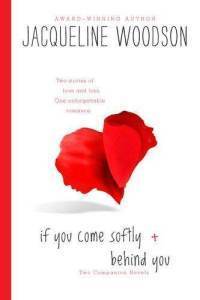 worth doing. I just don't see it as lesser than. I think it's a new world and this is a new way to get the book out there. It's going to be interesting to see what survives. Mainstream publishers are taking books out of print by the minute. Whereas you have all this control over how the book stays in print, how long it lasts, how many ways to get it out into the world. I feel like, one of the places I'm at is, having for years depended on the publisher to do all the publicity and make the book last. And then you have something like the bind-up of If You Come Softly. Barnes & Noble didn't pick it up and it's about to go out of print after a year because the mainstream publisher depends solely on Barnes & Noble, and if they say "Stop, we don't want this," then the publisher goes, "Wow! Now what do we do?"
worth doing. I just don't see it as lesser than. I think it's a new world and this is a new way to get the book out there. It's going to be interesting to see what survives. Mainstream publishers are taking books out of print by the minute. Whereas you have all this control over how the book stays in print, how long it lasts, how many ways to get it out into the world. I feel like, one of the places I'm at is, having for years depended on the publisher to do all the publicity and make the book last. And then you have something like the bind-up of If You Come Softly. Barnes & Noble didn't pick it up and it's about to go out of print after a year because the mainstream publisher depends solely on Barnes & Noble, and if they say "Stop, we don't want this," then the publisher goes, "Wow! Now what do we do?"
ZE: They passed on it? Because of the cover?
JW: I don't know why. I have no idea why they passed on it.
ZE: I think that's one of your most popular books, from people I talk to.
JW: I think they'll carry If You Come Softly or Behind You [separately]. I haven't seen it in a long time in the neighborhood B&N, but when this [bound edition] came along they said, "We're not carrying this in our stores."
ZE: That's happened to a lot of authors I know of—authors of color specifically.
JW: Interesting.
ZE: And then publishers try to change the cover to make it look like it's not about people of color—"Don't panic!"
JW: "You can read this!" So I think one of the cool things about being a writer now is that you're already on the forefront of how to get the stuff, you know, how to do the work that needs to be done to get the book in the world in a way that I'm not.
ZE: Are you interested in the blogosphere?
JW: To blog myself?
ZE: Or to follow other people's blogs?
JW: Yeah, I like reading blogs but I can't even imagine…whenever I think of [starting] a blog I think, "I should be working on a book, I should be answering fan mail."
ZE: It can be a huge time suck. But people would love to know your every daily detail.
JW: I tweet though.
ZE: That's true. Does that make you feel more connected to your readers?
JW: It does. It also makes me have to think about each day in a different way. Today I was tweeting about a nine-year-ld kid I saw walking down the street reading a Kindle. He tripped and I thought, "That's the book. That's the book talking to him!" And a part of me went, "Yes!" But Toshi's sister is getting a Kindle for her birthday because she lives between two houses and she gets mad when she leaves her books at one house. And that makes sense. But it gives me pause because so much change is happening so quickly. But no—I love your blog but I won't be joining you there.
ZE: Ok. For all those bloggers out there, I tried. To conclude, you mentioned you have a book about meth addiction. When can people expect to see that on the shelf?
JW: That's coming out in January of 2012.
ZE: Oh, good—not that long. And I think you said you have books scheduled to come out for the next five years?
JW: I have books coming out until 2014. I have a picture book that EB Lewis is illustrating, Each Kindness, about the year that a girl is not kind, and the aftermath of that, how one can't go back to a moment, the moment might stay with them always. And I'm excited about it. And I have another picture book called The Rope that James Ransome's illustrating. And I have a book called Baby's Brothers Red and Blue that actually spans many decades. It's a novel that starts in 1910 and goes to the 1970s, about two brothers from the Negro Migration through the Viet Nam War. A lot of stuff happens. And right now I'm trying to finish up a book about a girl who time travels back to pre-Civil War. But it's not going so well—yesterday I stopped writing early.
ZE: When you stop writing do you pick up another project?
JW: Yeah. I'm doing that play [on African American folk artist Clementine Hunter]. I'm actually going to the library now because I refuse to buy any more books. I need to get a bunch of librettos to read because I just don't know how to write one.
ZE: You've done an adaptation before.
 JW: Yeah, that's Locomotion. But I'm doing an opera with Robert Wilson, and Bernice Johnson Reagon, and Toshi Reagon. And so since it's an opera and I'm writing the book, I don't know how to do that. But I did the adaptation of Locomotion, and that was fun.
JW: Yeah, that's Locomotion. But I'm doing an opera with Robert Wilson, and Bernice Johnson Reagon, and Toshi Reagon. And so since it's an opera and I'm writing the book, I don't know how to do that. But I did the adaptation of Locomotion, and that was fun.
ZE: Do you like the idea of reaching different audiences with different formats?
JW: I do! I'm really starting to like the play format and it's kind of my go-to when I'm really stuck as a writer. It makes me feel like, "Ok, I got this."
ZE: I feel like writing plays helped me to hone dialogue. You really have to embed action in the dialogue because they're on a stage, they can't be running around doing all kinds of different things.
JW: It is really true. It creates a much cleaner line. And that tightness comes back to my fiction.
ZE: And congratulations—you just won the Boston Globe-Horn Book Honor award for Pecan Pie Baby. I was talking to illustrator Shadra Strickland—she just won the Ashley Bryan award and I asked her if she had a space in her studio for her awards. And she said, "I can't! I have a space right above my desk but it's just too much." What do you do with all your awards?
JW: They're behind me.
ZE: So at your desk. You don't face them, but they're there.
JW: Yeah, I can turn and look at them. If they were right on the wall in front of me I would be stressed out. And it took me a long time to put them up in my office. I still have a bunch in the storeroom. But I definitely don't have them facing me, and I actually don't work in my office so much. I go in there once the book is finished.
ZE: What's the greatest reward of being a writer if it's not the award?
JW: You know, I feel like when I finish a book, that's when I'm happiest as a writer. When I know I've written that last line, before I start having the cover fight with my publisher. It's such an accomplishment to say, "Ok, this is done. I've done this." Before I start stressing about the next book. So usually I'm working on more than one book at a time, but when one is coming really well, I'll stop and just work on that. And when I write that last line, there's no other feeling. So that's cool. And I love when a new story comes. I don't know if this happens to you, but when you've written that last line you think, "This is it. This is the last book I'll ever write."
ZE: I can't believe you think that, having written 30 books.
JW: Thirty's pretty much a whole number. So this is the gift that the universe gave me, it's enough now. I do think there's a time to move on.
ZE: What would you do if you weren't writing?
JW: Dream dream dream? Like, if I could do anything I wanted to do? I'd play pro ball.
ZE: Basketball? Get out of here—like for the Liberty?
 JW: No, no, for the Nets, for the Knicks, for the Phoenix Suns, or the Chicago Bulls.
JW: No, no, for the Nets, for the Knicks, for the Phoenix Suns, or the Chicago Bulls.
ZE: Ok, explain that to me.
JW: Well, you said, "dream."
ZE: You would want to play in the men's league?
JW: Yes, yes. I'd want to be tall enough, powerful enough. I love basketball.
ZE: Interesting. Why not the WNBA?
JW: I like the NBA. It's faster, it's bigger…
ZE: It's more physical.
JW: Yeah, it's much more of an adrenaline rush. I respect and love a lot of the women who play for the WNBA, and I'm glad it's there. And I think also, from childhood it was my dream to be the first woman player in the NBA. And then the WNBA came along when I was an adult.
ZE: Well, you know, the Nets are coming to Brooklyn. They'll be in your 'hood soon enough.
JW: I know, I know. But I want to play for the New Jersey Nets!
ZE: Ok, I think I have exhausted my questions. Thank you so much for doing this!








July 29, 2011
Jacqueline Woodson interview, Part 1
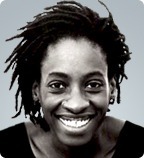 In May I had the opportunity to meet with Ms. Magazine associate editor Jessica Stites while she was visiting NYC. While strolling through the Brooklyn Botanic Garden, we tried to think of ways we could collaborate around the issue of equity in publishing. A conversation with veteran author Jacqueline Woodson was one of our ideas, and I'm happy to share this link to the interview on the Ms. blog ("Writing Children's Books While Black and Feminist"). Here on my own blog I've decided to post the unedited transcript in two parts; you can also find video footage of our hour-long talk on YouTube. Enjoy!
In May I had the opportunity to meet with Ms. Magazine associate editor Jessica Stites while she was visiting NYC. While strolling through the Brooklyn Botanic Garden, we tried to think of ways we could collaborate around the issue of equity in publishing. A conversation with veteran author Jacqueline Woodson was one of our ideas, and I'm happy to share this link to the interview on the Ms. blog ("Writing Children's Books While Black and Feminist"). Here on my own blog I've decided to post the unedited transcript in two parts; you can also find video footage of our hour-long talk on YouTube. Enjoy!
ZE: Thank you so much for taking the time to speak with me. Let's start with your early influences. Scholar Rudine Sims Bishop has argued that, "readers often seek their mirrors in books." She also suggests that books can serve as "mirrors, windows, and sliding glass doors." As a child, what books offered you a reflection of yourself, and which ones opened up another world for you?
JW: That's a good question. I don't know the sliding glass door reference. I know about the mirror…
ZE: The sliding glass door often gets left out of it.
JW: Interesting.
ZE: So the window, obviously, is that you can look into someone else's world, but to me that's voyeurism. So I love that she suggests you can open that sliding glass door and enter that world and kind of exist as an equal with other kinds of people.
 JW: Yeah, that's important. I'm glad that's in there. I think that looking back on it, now that I'm past my angry thirties of [having] no mirrors, I feel like I was able to make the journey of kind of finding myself in any book. Because that was all I had. So I would read something like Are you There God? It's Me, Margaret and I was flat-chested like Margaret so—ok, this was where we kind of met each other. And the books that really kind of opened doors for me—one book that in retrospect made me gasp was Stevie by John Steptoe. Just the fact that they talked like I did, they were brown like I was brown. They lived in the city, it looked like they lived in the apartment in the illustrations. And everything just made me say, "Whoa, I know these people!" And Mildred Taylor's Roll of Thunder, Hear My Cry just 'cause my
JW: Yeah, that's important. I'm glad that's in there. I think that looking back on it, now that I'm past my angry thirties of [having] no mirrors, I feel like I was able to make the journey of kind of finding myself in any book. Because that was all I had. So I would read something like Are you There God? It's Me, Margaret and I was flat-chested like Margaret so—ok, this was where we kind of met each other. And the books that really kind of opened doors for me—one book that in retrospect made me gasp was Stevie by John Steptoe. Just the fact that they talked like I did, they were brown like I was brown. They lived in the city, it looked like they lived in the apartment in the illustrations. And everything just made me say, "Whoa, I know these people!" And Mildred Taylor's Roll of Thunder, Hear My Cry just 'cause my 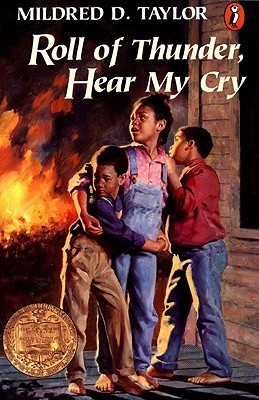 family was from the South and I think that's a book that I've read so many times and each time I read it, it never gets old. I mean, I've revisited some of the books from my childhood and some of them feel real different than when I was reading them as a kid, but that one has held up. Zeely was one of the first books I read that was by an African American about African American people. Sounder to this day still makes me angry.
family was from the South and I think that's a book that I've read so many times and each time I read it, it never gets old. I mean, I've revisited some of the books from my childhood and some of them feel real different than when I was reading them as a kid, but that one has held up. Zeely was one of the first books I read that was by an African American about African American people. Sounder to this day still makes me angry.
ZE: Reading it?
JW: Yeah. It's a room I'll walk out of.
ZE: Did you also see the film when you were a kid?
JW: I saw the film and I actually loved the film but the book was just—ugh.
ZE: What made you angry about it?
JW: It was supposed to be my people and it wasn't and I couldn't tell how it wasn't. So I felt like, almost kind of like I wasn't, like something almost was wrong with me. Because if this is supposed to be who we are and this is so different from who I am and who I know, then how am I legitimate? And you know, as an adult I realized that no one had a name except the dog. They were supposed to be Southerners but they never touched each other, and you know Southerners are always hugging and kissing and saying, "Look how you've grown!" And remarking on things you don't want them to remark on.
ZE: They were a sharecropping family, weren't they?
JW: They were sharecroppers, they were poor and sad. So this writer, who was not African American, could not get inside their story. I don't know what his 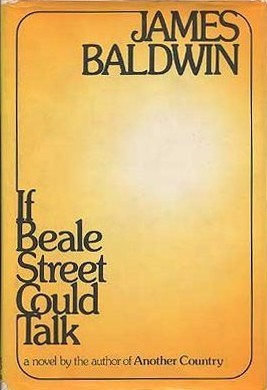 connection was. I think in the forward he talks about someone telling him that story, like an old black man telling him the story of that family. But the fact that he could create a story where he couldn't see any hope or happiness in it…and again, I didn't know this when I was a kid. I just knew this book made me really angry. Later on, of course, I came to—I remember If Beale Street Could Talk when I was in the 7th grade maybe. Tish and Fonny, and they lived in Harlem or somewhere in the city and it was such a loving love story. I also remember reading The Bluest Eye when I was a kid.
connection was. I think in the forward he talks about someone telling him that story, like an old black man telling him the story of that family. But the fact that he could create a story where he couldn't see any hope or happiness in it…and again, I didn't know this when I was a kid. I just knew this book made me really angry. Later on, of course, I came to—I remember If Beale Street Could Talk when I was in the 7th grade maybe. Tish and Fonny, and they lived in Harlem or somewhere in the city and it was such a loving love story. I also remember reading The Bluest Eye when I was a kid.
ZE: You talked before about your "angry thirties." I don't detect rage in your writing; I actually see a lot of grace. Where did that rage come from and where did it go?
JW: That's a really good question. I think the rage was more in my life. It wasn't until my early 30s that I really started thinking about the disparity between race and economic class, and all of those ways in which the world just wasn't working. I think that's when I started coming into more of a sense of myself as an outsider. And as a kid I felt it all the time because I was a Jehovah's Witness and you know, my family was kind of different from other families on the block. But in terms of my growing consciousness of who I was and how I fit into the greater scheme of things, it was kind of shocking to realize that no, I wasn't part of this privileged majority that had an education before college and that really had a lot of privilege and with it, entitlement. And I kind of had to learn about my right to be here. And that was through a lot of anger and then acceptance—not of that world as it was, but of the fact that yeah, I do have a right to be here and I do have something to say and I am as smart as and sometimes smarter than people who've been well educated or are able to pay for a lot of education. So that was definitely a period of growing, and growing through that anger, and I think the way the grace came through in the writing was it was cathartic for me. I think there were probably drafts that were angrier than other drafts and I realized I'm not going to be heard through the rage, I'll be heard through the love. And it's kind of what began to inform all of my life, including my writing. If that makes sense.
ZE: That makes a lot of sense, and it's something I could probably learn from since I'm still in my angry thirties! You're the parent of two children. In 2011, how easy is it for your children to find their "mirrors" in books? Has motherhood changed the way you write? I know you took your daughter to a literary festival not long ago, which I think is great, and I'd love to know how that went.
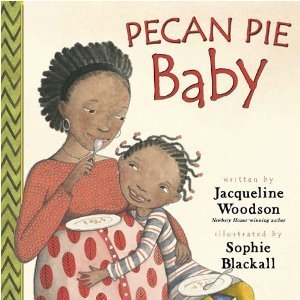 JW: Oh, goodness. One thing motherhood has done is it's given me even more of a sense of urgency in terms of what's at stake. What's at stake for how my children will see themselves in the world. I think before I was a parent I thought about it in terms of the child and children, but I didn't have a real personal connection to it except the connection that was me as a child and wanting what I didn't have as a child in the literature that I created. And wanting that for other children. Then once I had my children and seeing that they needed something [got me] really thinking more deeply and urgently. My daughter does not read my books. She says, "I'm not a fan." And maybe one day she will.
JW: Oh, goodness. One thing motherhood has done is it's given me even more of a sense of urgency in terms of what's at stake. What's at stake for how my children will see themselves in the world. I think before I was a parent I thought about it in terms of the child and children, but I didn't have a real personal connection to it except the connection that was me as a child and wanting what I didn't have as a child in the literature that I created. And wanting that for other children. Then once I had my children and seeing that they needed something [got me] really thinking more deeply and urgently. My daughter does not read my books. She says, "I'm not a fan." And maybe one day she will.
ZE: You're kidding!
JW: Yeah, she says she likes funny stuff. I'm not that funny. But my son reads or will let us read the picture books to him. We were at Putnam yesterday and they have posters of all the Caldecott and Newbery and Coretta Scott King winners and every time he came across one of my books he'd say, "I wrote that one Mommy." He'll also say he wrote Make Way for Ducklings. It's hysterical. But it definitely brought that sense of urgency to me. And I think I got funnier because my kids make me laugh so much. I never had that censor flag that I think some young writers have—you know, this is going to embarrass my family or make my parents mad at me. But I think now, with children, I do think if Toshi reads this in ten years, how is this going to make her feel or what is she going to think about me, and where I was in this place and it definitely informs how I'm writing stuff. When I was writing Beneath the Meth Moon, the new YA book about a girl addicted to meth, in terms of thinking about a young person addicted to drugs and Toshi coming to this book when she's 14 and thinking, "How does Mom know so much about this?" but also having that experience of that world in a way that hopefully scares her away from drugs but also makes her think about the bigger world and the greater good in a way that hopefully writing does for all people. But it is a tighter personal connection in terms of thinking about how my kids come to my writing.
ZE: I notice that in a lot of your books you represent alternately configured families and we just had the Marriage Equality Act passed here in NY state. How hard is it for you to sell stories that show children who have alternate realities?
 JW: I love the way you put that—"alternate realities." It hasn't been a huge struggle in that way. I haven't really done the two mom/two dad thing, so I haven't kind of pushed that boundary. I think mainly because that story hasn't come to me yet in a way to tell it that's—when I think of a two-mom or two-dad family, I'm thinking, "This is the first thing I'm thinking about—this kid has two moms or two dads." And that's not the story. Kids don't care about that. So I'm constantly trying to think about what the deeper story is in there. Because I think novels do fail when they try to push the issue somehow, when they try to be didactic. And I never want to do that. But I do want to write about people who haven't historically been seen in literature and I think publishers are open to that as long as they like the writing. So when I put a single mom on the page, when I put a girl being raised by her grandma on the page, when I put a dad who's incarcerated on the page, when I put familial or regular foster care on the page, I have a sense of the deeper story. I was raised by my mom and grandma, so I know all the stories around that and not just, "I live with my grandma and here's that story." I think because the stories are multilayered the family can exist in the fiction in a way that is, of course, "universal," meaning other people will read it and like it and publishers will buy it. But I have had letters from The Notebooks of Melanin Sun—the first time I put a queer mom on the page people were upset about that.
JW: I love the way you put that—"alternate realities." It hasn't been a huge struggle in that way. I haven't really done the two mom/two dad thing, so I haven't kind of pushed that boundary. I think mainly because that story hasn't come to me yet in a way to tell it that's—when I think of a two-mom or two-dad family, I'm thinking, "This is the first thing I'm thinking about—this kid has two moms or two dads." And that's not the story. Kids don't care about that. So I'm constantly trying to think about what the deeper story is in there. Because I think novels do fail when they try to push the issue somehow, when they try to be didactic. And I never want to do that. But I do want to write about people who haven't historically been seen in literature and I think publishers are open to that as long as they like the writing. So when I put a single mom on the page, when I put a girl being raised by her grandma on the page, when I put a dad who's incarcerated on the page, when I put familial or regular foster care on the page, I have a sense of the deeper story. I was raised by my mom and grandma, so I know all the stories around that and not just, "I live with my grandma and here's that story." I think because the stories are multilayered the family can exist in the fiction in a way that is, of course, "universal," meaning other people will read it and like it and publishers will buy it. But I have had letters from The Notebooks of Melanin Sun—the first time I put a queer mom on the page people were upset about that.
ZE: Really?
JW: Yeah, I think part of it was that it was the '90s and the Christian right was really starting to skyrocket and it was published by Scholastic, which was a mistake in itself. You can't really do stuff at a conservative publisher and expect it to have the kind of life it would at a place that's more comfortable dealing with stuff like that. So again, I try not to think about any issue in the book. To me the families are families and this is what families are. To me, the mom/dad family is an alternative to my family. And so few of them exist, even on our block. That it's kind of like, when you see that it's like, "Wow—they're still together? Wow—that person's being raised by a mom and dad."
ZE: I would love to know what you think about the Iowa marriage pledge signed by some Republicans. Have you heard about that? It has a clause that claims African American children were more likely to be raised in a two-parent family under slavery than since President Obama was elected in 2008.
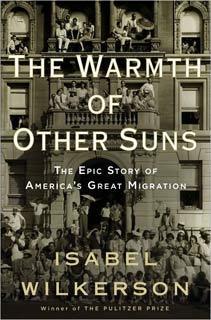 JW: Oh, man. Well, [those] Republicans don't know what they're talking about. It's so ridiculous because in ten years, of course, they're going to realize that that wasn't the case. When you read something like The Warmth of Other Suns by Isabel Wilkerson. In it she talks about how all the statistics at that time showed that people who were part of the Negro migration were more inclined to have children out of wedlock, to be less educated and less employed. And then twenty years later they did another study and realized that those same people were more inclined to have families that were "intact" and have higher education and have two or three jobs, who had come here with that idea of working and having a family and creating a better life. So when Republicans say that about African Americans I just have to roll my eyes, and say, "Ok, whatever you need to say about us right now to make you feel stronger, you can have it if that's all you have." When I took Toshi with me to Virginia for the conference, I made her listen to The Warmth of Other Suns on the way down and back up. She was like, "This is so boring." Chris Myers is doing a video and asking kids what does it mean to be American?
JW: Oh, man. Well, [those] Republicans don't know what they're talking about. It's so ridiculous because in ten years, of course, they're going to realize that that wasn't the case. When you read something like The Warmth of Other Suns by Isabel Wilkerson. In it she talks about how all the statistics at that time showed that people who were part of the Negro migration were more inclined to have children out of wedlock, to be less educated and less employed. And then twenty years later they did another study and realized that those same people were more inclined to have families that were "intact" and have higher education and have two or three jobs, who had come here with that idea of working and having a family and creating a better life. So when Republicans say that about African Americans I just have to roll my eyes, and say, "Ok, whatever you need to say about us right now to make you feel stronger, you can have it if that's all you have." When I took Toshi with me to Virginia for the conference, I made her listen to The Warmth of Other Suns on the way down and back up. She was like, "This is so boring." Chris Myers is doing a video and asking kids what does it mean to be American?
ZE: For the book he did with his dad [We Are America: A Tribute from the Heart].
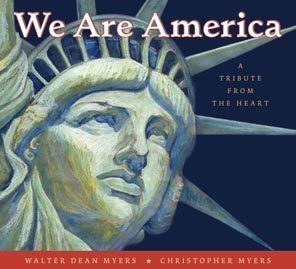 JW: Right. So he's having this blog with videos on it. And I interviewed Toshi out here and she was like, "Whatever. I live in Brooklyn, I'm in Park Slope. It's America." And I said, "Come on, honey, you can be deeper than this." And she said, "What? America is America." So I said, "What does it mean to be African American?" And she said, "Well, you know, I was listening to this book with you, The Warmth of Other Suns, and I know that black people did a lot of good stuff, like we built this country. And if it wasn't for African Americans we wouldn't have Michael Jordan or Michael Jackson." And I said, "Ok, how about some non-celebrities, like the president?" And she said, "Yeah, we wouldn't even have Obama and I realize I could be president!" And that's so interesting because I don't think she can be president, you know, I'm not there yet—thinking a black woman could! I'm still at the point of thinking, "Wow, we have a black man as president." But she couldn't attach unless it was African American. "American" meant nothing to her.
JW: Right. So he's having this blog with videos on it. And I interviewed Toshi out here and she was like, "Whatever. I live in Brooklyn, I'm in Park Slope. It's America." And I said, "Come on, honey, you can be deeper than this." And she said, "What? America is America." So I said, "What does it mean to be African American?" And she said, "Well, you know, I was listening to this book with you, The Warmth of Other Suns, and I know that black people did a lot of good stuff, like we built this country. And if it wasn't for African Americans we wouldn't have Michael Jordan or Michael Jackson." And I said, "Ok, how about some non-celebrities, like the president?" And she said, "Yeah, we wouldn't even have Obama and I realize I could be president!" And that's so interesting because I don't think she can be president, you know, I'm not there yet—thinking a black woman could! I'm still at the point of thinking, "Wow, we have a black man as president." But she couldn't attach unless it was African American. "American" meant nothing to her.
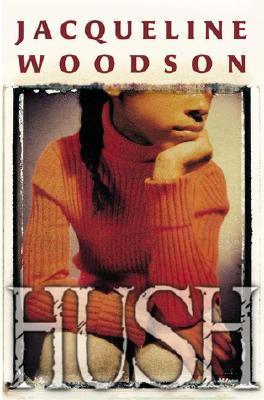 ZE: You have written more than 30 books about an incredibly wide range of experiences, including foster care, teen pregnancy, witness protection programs, police brutality, and racial ambiguity, and incarceration. I notice that many of your characters move from isolation/alienation to a place of belonging. How do you develop ideas for your books, and is there a particular overarching message you want to send young readers?
ZE: You have written more than 30 books about an incredibly wide range of experiences, including foster care, teen pregnancy, witness protection programs, police brutality, and racial ambiguity, and incarceration. I notice that many of your characters move from isolation/alienation to a place of belonging. How do you develop ideas for your books, and is there a particular overarching message you want to send young readers?
JW: It's interesting that you say they move from isolation to belonging because that's kind of what I did in my thirties. And so I think I'm telling that story again and again in different ways and constantly figuring it out maybe just a little more deeply than the last time. Basically I start with the character, the characters have always come to me first and then I figure out what it is they want and how they're going to get it. I feel like so much of my life is trying to figure out what they want. Asking myself all of these questions: who is this person? Where do they live? What do they look like? What are the paradoxes in their lives? In terms of a message, I never know what a book is about until someone says to me, "I read your book about blah blah blah" and I'm like, "Oh, ok, that's what it's about?" I feel I'm so far removed, I'm very much in the process of writing but it's almost like being in a zone, really. And then with the characters and their world and by creating their world I walk deeper into their world and start seeing it clearer and clearer with each revision. Then as the characters get more clarity and the book starts moving along and then is finally finished, when I stand back I know I've written these characters and told this story but I really never know what the story's trying to say, really, until I read the good reviews because I don't read the bad ones.
ZE: I don't think there are any, Jackie!
JW: I beg to differ! I don't think I have a message aside from what I believe myself, which is that we all have a right to be here, and trying to show the many ways that people can be here and be whole. Which is what I'm constantly trying to reinforce in myself and my kids and the community. So if someone said, "Why do I write?" I think because this is the power I have, this is what I know how to do to feel powerful and to make others feel powerful.
ZE: If someone said your characters make African Americans seem noble, how would you respond?
JW: We are noble!
ZE: Some of us—some of the time!
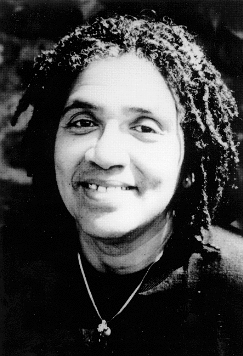 JW: I think the fact that we're even here and standing is amazing. Given how we got to this country. You know, in the words of Audre Lorde, "We were never meant to survive."
JW: I think the fact that we're even here and standing is amazing. Given how we got to this country. You know, in the words of Audre Lorde, "We were never meant to survive."
ZE: "Not as human beings."
JW: Yeah! To go from dehumanization to humanization to creating change—or not creating change. But I think it's a miracle for a lot of people to be walking through the world given what their lives have been. But when I look at our people—not just African Americans but Caribbean Americans. Black people in this country did not come here easily, no matter how they got here. And even when you look at something like income versus wealth, and how people have been able to raise families and send their kids to college and even buy a home. We did not get 40 acres and a mule—some did, but a lot didn't, it's bootstraps. I always talk about, especially a lot of people in Park Slope, there is always some hidden money somewhere. Suddenly somebody has a down payment on a house…
ZE: That's wealth.
JW: Yeah, that's exactly what it is. And for the most part we don't have wealth. We have income and maybe we have one generation of wealth. What we have is the wealth of our history and the wealth of our survival. The fact that when all else fails, this is what we can come back to. And it helps me when I'm writing a book—I'm writing the 30th book and I'm still like, "I don't think I can do this."
ZE: Really?
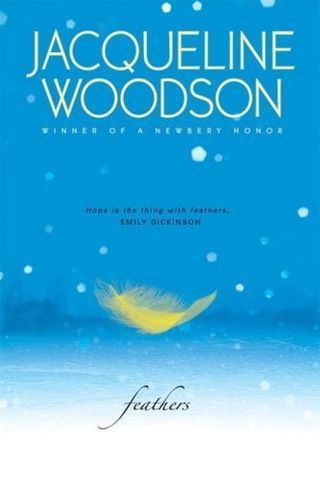 JW: Yeah! I'm sorry, it never goes away. That's one of the big bummers about writing. I tend to think, "That was a fluke," or "I knew I was able to do it for that one but can I do it for this?" And also because the stories, going from Christianity in Feathers to race and identity politics to meth in a Midwestern white community…
JW: Yeah! I'm sorry, it never goes away. That's one of the big bummers about writing. I tend to think, "That was a fluke," or "I knew I was able to do it for that one but can I do it for this?" And also because the stories, going from Christianity in Feathers to race and identity politics to meth in a Midwestern white community…
ZE: Do you do that on purpose? Do you push yourself into areas that make you feel insecure maybe?
JW: Well, Dr. Zetta…I just get bored! I don't want to revisit the same places because I don't think I have any more stories to tell there. So that's also why it's hard to write sequels. Because it's like, "I've done that!"
ZE: Oh yes…
JW: Are you in the middle of sequel writing?
ZE: I'm in the middle of two sequels. And I just read Behind You, which you kindly gave me, thank you. And I thought, "She called it a companion book." And I remembered having a conversation with another author who said, "Stop calling it a sequel. Call it a companion book because then it can exist on its own. And you don't have to fuss and worry about continuity." But it has to stand on its own in terms of dramatic action and that I struggle with a lot.
JW: But you know, from one book to the other they want different things.
ZE: The characters want different things, but readers have expectations from the first book.
JW: Yeah, that's true.
ZE: "Is she going to end up with so-and-so? And I know you didn't make her do that!" And I just think, let me just finish the book before anyone else says anything.
JW: It's true. I tend not to talk about it until I'm way deep in it and have a sense of where it's going.
[Part 2 of this interview will be posted tomorrow, but you can watch the entire interview now on You Tube.]









July 28, 2011
calling all poets!
 Earlier this week I had the pleasure of meeting Carol-Ann Hoyte, a poet/librarian from Montreal. She's planning to publish an anthology of children's poetry next year and is actively seeking submissions—please share this exciting news with others!
Earlier this week I had the pleasure of meeting Carol-Ann Hoyte, a poet/librarian from Montreal. She's planning to publish an anthology of children's poetry next year and is actively seeking submissions—please share this exciting news with others!
CALL FOR SUBMISSIONS
Submission Deadline: April 30, 2012
Ready, set, write! An anthology of children's poetry dedicated to the wide world of sports is in the works. Our target release date for the collection is August 2013 — six months before the 2014 Winter Olympics in Sochi, Russia. We're looking for original, unpublished poems, aimed at 5 – 12 years old, that deal with various aspects of athletics such as but not limited to the following:
*Olympics and other major international sports events (ie. FIFA World Cup)
*winter sports/summer sports (NOTE: do not have to be official Olympic sports)
*winning and losing
*individual/team sports
*amateur/professional athletes
*sports fans
*equipment/uniforms
*sports jobs (from athletes, coaches, and referees/umpires to those who work behind the scenes)
*surfaces (ie. ice) on which sports are played/places (ie. stadiums) where sports are played
*sports history and other miscellanea (halls of fame, records, trivia, etc.)
Please email poems to Carol-Ann Hoyte at kidlitfan1972 at yahoo dot ca.
Poets whose work is selected for the collection will receive a small honorarium. We will contact you in late July 2012 / early August 2012 if we plan to include your poem in the anthology. A portion of the anthology's proceeds will be donated to a North American or international organization dedicated to working with youth in sports.
Carol-Ann Hoyte & Heidi Bee Roemer, The Co-Editors








July 23, 2011
lady business
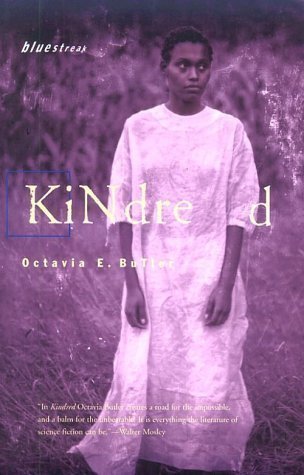 Jodie over at Book Gazing recently shared a great giveaway featuring "lady authors" of speculative fiction—enter to win a copy of Kindred by Octavia Butler, The Hunger Games by Suzanne Collins, or A Wish After Midnight by yours truly! I'm honored to be in such good company and love that people are stopping by to share their recommendations. Which titles come to mind when you think of women in spec fic/sci-fi? I just finished an article for a Canadian literary journal and had to include NK Jemisin in my list of black women writers under 40—The Hundred Thousand Kingdoms blew my mind and The Broken Kingdoms was just as good…
Jodie over at Book Gazing recently shared a great giveaway featuring "lady authors" of speculative fiction—enter to win a copy of Kindred by Octavia Butler, The Hunger Games by Suzanne Collins, or A Wish After Midnight by yours truly! I'm honored to be in such good company and love that people are stopping by to share their recommendations. Which titles come to mind when you think of women in spec fic/sci-fi? I just finished an article for a Canadian literary journal and had to include NK Jemisin in my list of black women writers under 40—The Hundred Thousand Kingdoms blew my mind and The Broken Kingdoms was just as good…








July 22, 2011
sum it up
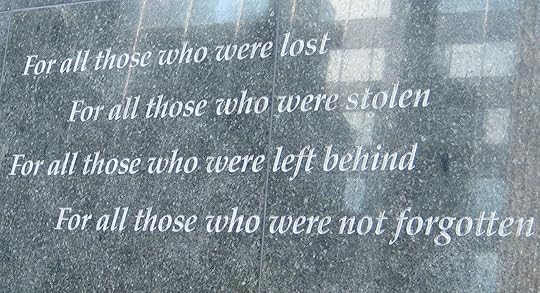 No publisher's perfect, but I find there's a lot to love about my relationship with AmazonEncore. Now that we're ready to move forward with Ship of Souls, I've been asked to complete a questionnaire that will help them edit, promote, and design the book. Here's a sampling of the questions:
No publisher's perfect, but I find there's a lot to love about my relationship with AmazonEncore. Now that we're ready to move forward with Ship of Souls, I've been asked to complete a questionnaire that will help them edit, promote, and design the book. Here's a sampling of the questions:
Describe the target audience, by factors such as age group, interests, education, gender, etc.
Teens (12+), all genders, African Americans, New Yorkers, Revolutionary War enthusiasts, urban fantasy fans
Please provide a brief summary of the book.
When 11-year-old Dmitri ("D") loses his mother to breast cancer, he finds himself taken in by an elderly white woman, Mrs. Martin. Fighting against a feeling of invisibility at home and at school, D finds his situation improving when he is asked to tutor a basketball star in the 8th grade. Hakeem (Keem) wants to impress a beautiful girl, Nyla, who's somewhat on the fringe, and her interest in D draws the three together.
D loves to watch birds and, while in the park, is amazed to find an injured bird that can talk. He takes it home and soon learns there are malevolent forces inhabiting the region beneath Prospect Park and they are hunting for the bird; Nuru is a life force that has been kept hostage by the earthbound spirits who are ghosts of soldiers that died in the Revolutionary War. Nuru's mission is to guide the ship that will carry the souls of the dead back to her realm. D has been chosen as Nuru's host, and must carry the bird from Brooklyn to the African Burial Ground in lower Manhattan where the dead await deliverance.
What was the inspiration for this book?
For years I've passed a boulder in Prospect Park that marks the site of historic Battle Pass; I often wondered what would happen if a boy discovered that after midnight, the plaque on the boulder opened like a door and led him underground. This past fall I found two cowrie shells on the sidewalk near my home and around the same time I learned that an 18th-century ship had been found at Ground Zero. While walking past the park one day, I heard a rustling in the leaves on the ground and suddenly saw three teens battling against a force that was trying to drag one of them underground…and Ship of Souls was born.
How is this book different from others of the same genre?
It's an urban fantasy that features three black teens—one is Muslim, one's an orphan, and one is an Afro-punk girl who was raised on a military base in Germany. It's contemporary but also incorporates NYC history.
Describe ideas that should be captured on the book's cover. Please be as specific as possible, including elements such as any particular color(s) or types of imagery.
A group of teens in an underground tunnel; the youngest is in front with his upheld hand radiating light. The white ghost teen should be close, but turned away from the light. I like the idea of a comic book/superhero look, but dark (not cartoonish) to match the mood of the story.








July 18, 2011
signs
I believe in signs. On Saturday as I walked past the library I noticed that someone had placed a rock on top of a tree trunk. I'd never noticed the trunk before, and couldn't remember what the tree had looked like or just when it was cut down. Walking down that corridor—Flatbush Avenue, with Prospect Park on one side and the Botanic Garden on the other—always starts me dreaming. It's a valley of shadows. I'd just passed the garden and wondered who had planted the corn stalks that are growing halfway up the steep slope that rises beyond the garden's spiked cast iron fence. Then the library was on my right, and I happened to glance at that tree trunk with the rock. I looked from the rock to the space-age public toilet that was installed on the other side of the street and knew both would find their way into this new book. Went for a run on Sunday and as I passed the boulder marking Battle Pass, noticed someone had tagged it with purple spray paint. Immediately heard D's voice, "Some kids got no respect." Thought about going back to take a picture but kept on going. Came home, got on the train to head downtown and realized I'd left my wallet behind…got off at the next station and walked home through my old neighborhood of Prospect Heights. As I headed down Washington Ave. with the garden on my right, a flash of red caught my eye—a cardinal swooped past and perched on the fence just a foot or two away. Then his mate called him and he slipped back inside the garden and out of sight. If I hadn't left my wallet and taken that route home I would have missed my friend; he finds me whenever I'm in the garden, but I haven't been there in a while because my visitor pass expired. Didn't renew it because I thought I might be leaving the city, but now I know I'm here for good. And for a reason. Am designing a course on Race & Environmental Justice and had just added "Shell in Nigeria" to my list of topics when Nayani posted this on Facebook. A good hook to get students interested in Ken Saro-Wiwa…everything's connected.









July 15, 2011
act right
So I don't have pink eye, which is good, because I'm reading some really interesting things these days. I've already come up with half a dozen new courses that I hope to teach at my new job, and am excited about broadening my field (Black Studies to Ethnic Studies). At a previous job, when I pointed out a disturbing instance of white privilege among my students, I was (of course) asked if I could teach a course on the subject. I refused and resented being asked to take responsibility for "white people behaving badly." I generally feel like it's up to white people to teach their brothers and sisters how to act right, even though I'm interested in Whiteness Studies and teach select texts in my classes. And I'm always heartened by white people who make a point of addressing their own privilege and opening the eyes of others. I'm finding more and more bloggers who are speaking out against white privilege, and most appreciate those who invite me to write a guest post but ALSO address the issue themselves on a regular basis (rather than saying, "Here's a PoC you should listen to, and now back to our regularly scheduled programming.")
This morning artist Suzanne Broughel posted a note on Facebook that was written by Gail K. Golden, "White Privilege as an Addiction." Golden argues that like any addict, whites need to seek treatment for their addiction and can start by charting a path to recovery as is done by members of Alcoholics Anonymous:
AA has steps to recovery. I am suggesting that those of us who are called white need to think seriously about overcoming our addictive relationship to power, dominance and privilege and am suggesting our own twelve steps in a lifetime of recovery work:
1 We admitted we were powerless over our socialization into a racist society.
2. We came to understand that working to undo racism could restore us to sanity.
3. We came to understand that we could not do this work alone and made a decision to accept leadership from people of color.
4. We make an honest inventory of how we participate in racist policies and practices.
5. We begin to address these wrongs by learning and teaching accurate history.
6. We pledge to educate ourselves and organize to undo racism, always remaining accountable to people of color.
7. We recognize that this is a lifelong process. It is a way of life that must be guided by Undoing Racism Principles.
8. We commit to learn how internalized racial superiority has distorted our thoughts and assumptions, and work to clarify our thinking.
9. As white people, we have been oblivious to the racism in our families, schools, offices, faith communities and we seek to address such wrongs wherever possible. If we are gatekeepers, (i.e. control access to resources), we will work to allocate these resources more equitably. [my emphasis]
10. We agree to learn to celebrate our own culture so we do not exploit the culture of other peoples.
11 We will seek to learn how racism was created so we can improve our conscious awareness of the sometimes invisible arrangement that perpetuates racism.
12 We commit to carrying our antiracist message to other white people.
You definitely want to read this entire article; this is one of many observations on white supremacy that I'd love to see remedied: "We tend to argue with people of color about THEIR experience. The idea that we know better is one of the ultimate expressions of the exaggerated sense of rightness." You might also be interested in Doret's interview with Stacy Whitman, editor of Tu Books, over at The Happy Nappy Bookseller. Doret asks, "How does an editor edit cross-culturally?" and "Has Tu been doing anything to encourage authors of color to submit their work?" Because it's possible to promote diversity without achieving equity…








July 13, 2011
dry eye
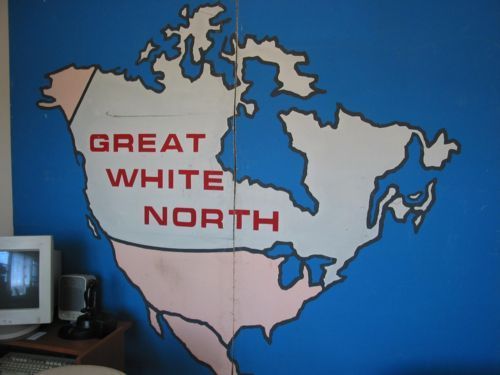 We've had a heatwave here in NYC and I thought I might have pink eye but now I suspect I've just been sitting in front of the fan too long! My eyes are dry and I'm ready for a LONG nap but wanted to share some links with you before I hit the couch. My essay, "Navigating the Great White North: Representing Blackness in Canadian YA Literature," has been published in The Centennial Reader. Not sure where they got that video of the sad black girl reading a book, but I guess it's a nice touch!
We've had a heatwave here in NYC and I thought I might have pink eye but now I suspect I've just been sitting in front of the fan too long! My eyes are dry and I'm ready for a LONG nap but wanted to share some links with you before I hit the couch. My essay, "Navigating the Great White North: Representing Blackness in Canadian YA Literature," has been published in The Centennial Reader. Not sure where they got that video of the sad black girl reading a book, but I guess it's a nice touch!
The Summer Blog Blast Tour is on, and Doret's got some great interviews over at The Happy Nappy Bookseller—be sure to stop by and learn more about Neesha Meminger (Jazz in Love) and Ashley Hope Perez (What Can't Wait). You can find the complete schedule of participating authors and bloggers at Chasing Ray.
I had the pleasure of interviewing Jacqueline Woodson this morning—and THIS time, I made sure I had plenty of batteries. We talked for an hour and I can't wait to transcribe the footage; stay tuned for a link to the interview once it's posted on the Ms. Magazine blog (extras to be posted here).
Lastly, after two years of un-/under-/self-employment, I accepted a new position today that will enable me to teach in my field AND stay in my beloved Brooklyn! I also got invited to serve as moderator on a YA panel at the Brooklyn Book Festival…more on that to come. Time for a little shuteye.











